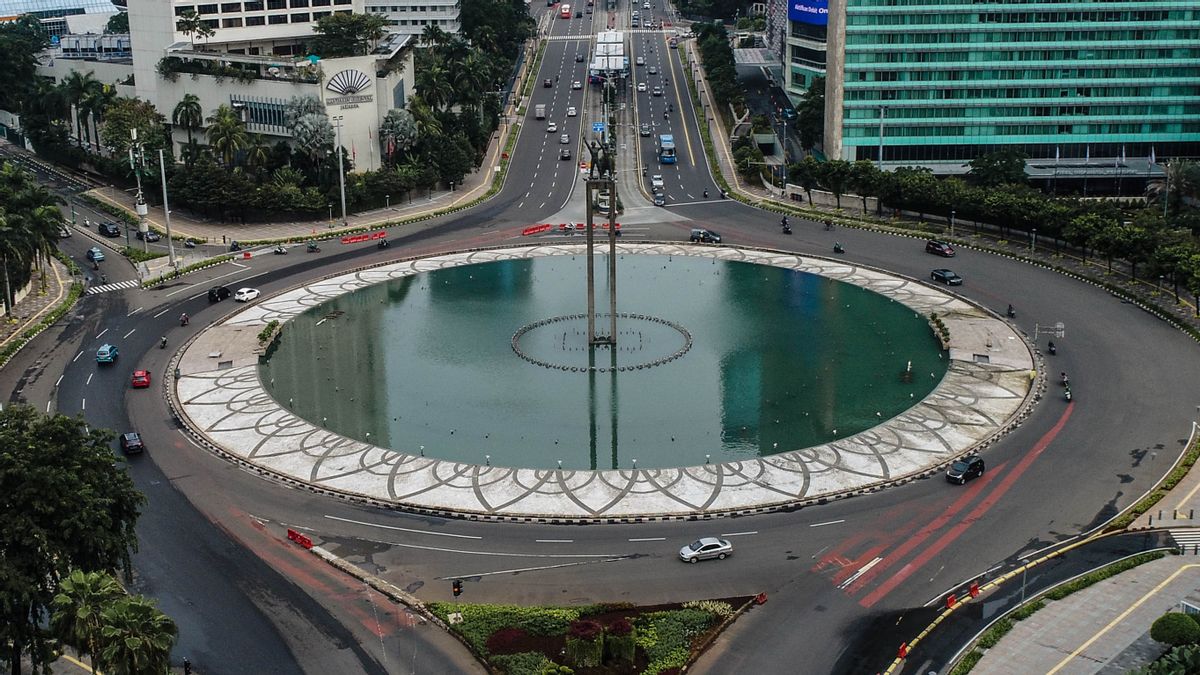JAKARTA - One of the countries that did not implement a lockdown policy, namely Japan, has finally entered the brink of recession. The country's economy was minus 7.8 percent in the second quarter of 2020, after the previous quarter also recorded minus 2.2 percent.
Meanwhile, on an annual basis or year on year (yoy), the economy of Sakura Country in the second quarter was minus 27.8 percent. Japan's policy of not implementing a total lockdown in dealing with the COVID-19 pandemic has received praise from the Indonesian government.
And will Indonesia overtake Japan to experience a recession in the third quarter? Executive Director Indef Tauhid Ahmad said, referring to the projected economic growth throughout the year issued by the government of minus 1.1 to 0.2 percent, it means that the government has admitted that a recession will occur.
Similar to Japan, Tauhid said, even though Indonesia currently does not implement a lockdown policy and chooses large-scale social restrictions (PSBB), the possibility of recession will be quite heavy.
"If we take the midpoint, it's minus. Our economic growth is minus 0.5 or 0.4 percent. This means that in the third quarter it is still negative. If it is still negative, because we have been negative for two quarters in a row, it will be a recession. With a statement The growth rate means that the government has actually acknowledged that a recession will occur, especially in the third quarter, "he told VOI, in Jakarta, Tuesday, August 18.
According to Tauhid, Japan is experiencing recession because the government does not pay attention to the health sector. This is proven by not being too strict in handling health. However, compared to Japan, Indonesia is more negligent in handling health.
Furthermore, Tauhid explained that strict health care has proven to have made China's economy grow positively. This means that managing health is the key to economic recovery.
"Japan is a bit lax in terms of health. We are actually very loose. In China it is very tight, even the army is involved. China is serious compared to other countries including Indonesia. China is actually testing using one by one technology, and in we're not done, "he said.
[/ read_more]
The steps of the Chinese government, said Tauhid, must be an example for the Indonesian government in dealing with the COVID-19 pandemic, especially from a health perspective. This is because if it is not handled seriously, the national economy will continue to recover.
"Why is this important? Because if his health is handled quickly until the case stops, it will be a fast economic recovery. Currently there is no lockdown, but PSBB is being implemented under the current scheme so we will still experience a recession phase just like Japan," he said.
Back to PSBB TightReflecting on the Japanese experience, said Tauhid, even though positive new cases of COVID-19 had relatively decreased. However, there remains concern among Japanese society regarding the transmission of the virus. He considered, with the concerns felt by the upper middle class, it would have an impact on consumption in the non-food and beverage sector.
Furthermore, Tauhid said, people in the upper middle class will avoid going to hotels, restaurants, and even tourist attractions. This is because the consumption of the middle class is very dependent on perceptions, situations and comfort.
"People there are still worried about going to public places, to places where there is no social distancing or shopping at tourist attractions, hotels and restaurants. Even though now it is low (the case) but because people are still worried, the recession will occur. much worse. This is what I also think happened in Indonesia, "he said.
According to Tauhid, the government should return to implementing strict PSBB as the initial handling of COVID-19 in Indonesia, especially in red zone areas.
"It should be tighter now, but now it seems to be slack again. I see this as a priority," he said.
[/ read_more]
The English, Chinese, Japanese, Arabic, and French versions are automatically generated by the AI. So there may still be inaccuracies in translating, please always see Indonesian as our main language. (system supported by DigitalSiber.id)













